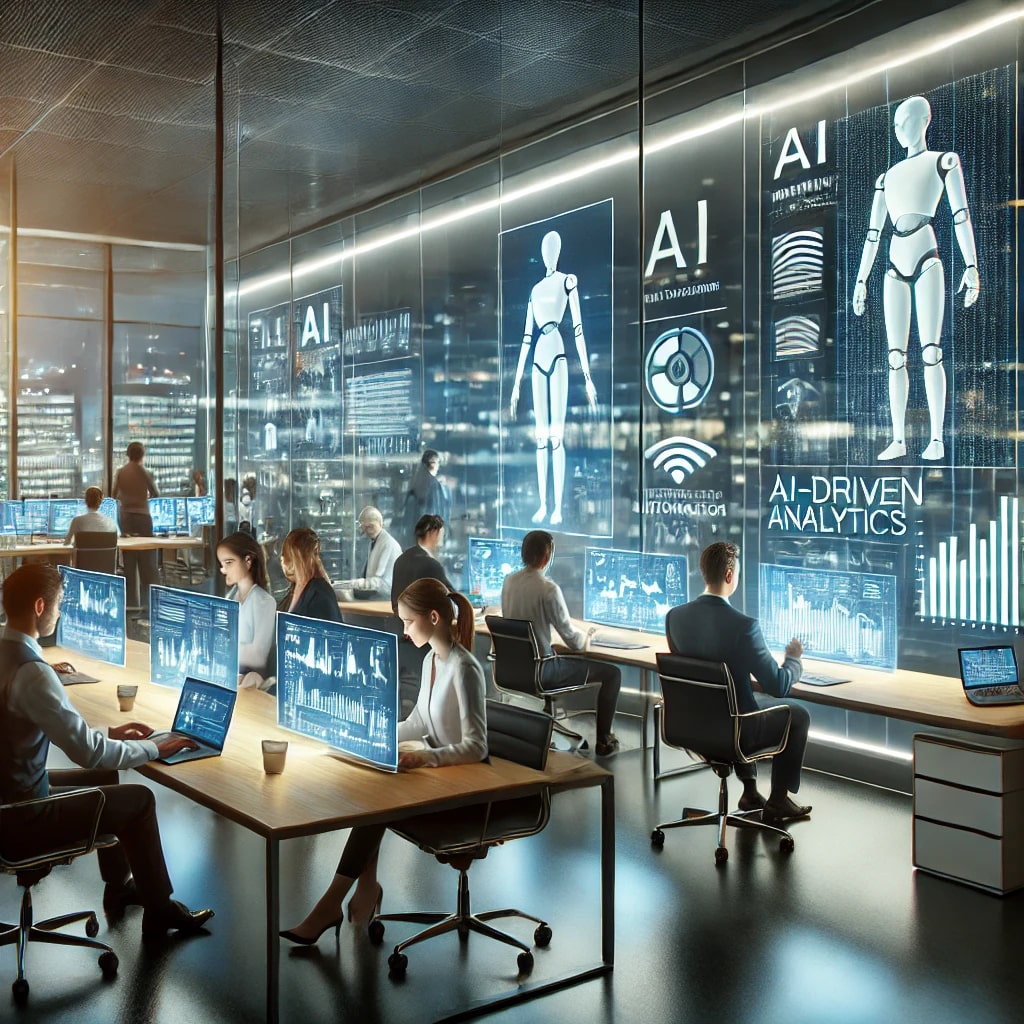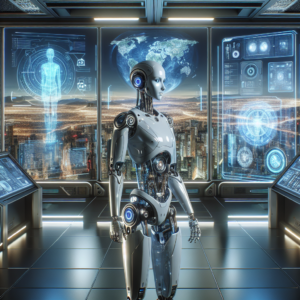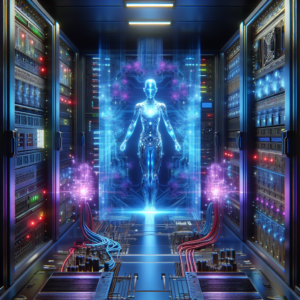AI is Coming for the Laptop Class
In today’s rapidly evolving technological landscape, the impact of artificial intelligence (AI) on various job sectors cannot be overstated. The “laptop class,” a term that refers to the segment of the workforce capable of performing their jobs remotely through a laptop and internet connection, is facing unprecedented changes as AI technologies continue to advance. This blog aims to explore how AI is disrupting the laptop class, the implications for remote work, and what this means for the future of employment.
The Rise of AI in the Workplace
AI has become a buzzword across different industries, primarily due to its potential to enhance productivity and efficiency. From automated customer service systems to sophisticated data analysis, AI offers a plethora of tools that can assist employees in performing their tasks more effectively. However, as AI continues to develop, the laptop class must grapple with the reality that these technologies are not just tools; they are also competitors.
The Automation of Routine Tasks
One of the most significant ways AI is impacting the laptop class is through the automation of routine tasks. Many professions that rely heavily on data entry, scheduling, and even basic decision-making are now being streamlined by AI algorithms. For example, software like chatbots can handle customer queries more efficiently than human employees, freeing up time for workers to focus on more strategic tasks.
However, this shift raises concerns about job security. Employees in fields such as marketing, finance, and customer service may find their roles diminishing as AI takes over functions that were once exclusively human domains. As the technology becomes more sophisticated, the potential for job displacement increases, leading to an urgent need for upskilling and adaptability among the workforce.
AI in Creative Fields
Interestingly, even creative fields are not immune to the influence of AI. Tools that can generate content, design graphics, and even compose music are becoming more prevalent. For instance, platforms powered by AI technology can assist writers by suggesting edits, creating outlines, or even drafting entire articles based on user input.
While this can enhance productivity for those in creative roles, it also raises the question of originality and the value of human creativity. As AI-generated content becomes increasingly sophisticated, professionals in creative industries may need to redefine their value propositions and find ways to incorporate AI into their work without sacrificing their unique perspectives and ideas.
The Remote Work Revolution
The COVID-19 pandemic accelerated the shift towards remote work, and as more companies embrace this model, the laptop class has become integral to the modern workforce. However, the rise of AI in this context presents both opportunities and challenges.
Enhanced Collaboration and Productivity
AI tools can significantly enhance collaboration among remote teams. With platforms that facilitate project management, communication, and data sharing, employees can work together seamlessly regardless of their physical location. AI algorithms can analyze team workflows, allowing for more efficient task delegation and project prioritization.
Moreover, AI can help identify bottlenecks in productivity and suggest improvements, making it easier for remote workers to stay on track. These advancements can lead to improved job satisfaction and a better work-life balance, as employees are empowered to manage their time and responsibilities more effectively.
Challenges of AI-Enhanced Remote Work
Despite the advantages, the integration of AI into remote work also presents challenges. Issues such as data privacy, surveillance, and the potential for bias in AI algorithms can create a toxic work environment if not addressed. Employees may feel that their actions are constantly monitored, leading to increased stress and decreased morale.
Furthermore, the reliance on AI can create disparities in access to technology. Not all workers have the same level of familiarity with AI tools, which can lead to a divide between those who can harness the technology effectively and those who struggle to adapt. This digital divide may further exacerbate existing inequalities in the workforce, making it crucial for organizations to prioritize training and support for all employees.
The Future of Employment in the Age of AI
As AI continues to permeate every aspect of work life, the future of employment for the laptop class remains uncertain. The traditional model of work is being reshaped, and adaptability will be key.
Upskilling and Lifelong Learning
To remain relevant in an AI-driven job market, the laptop class must embrace upskilling and lifelong learning. Organizations have a responsibility to provide training programs that equip their employees with the skills needed to work alongside AI. This includes not only technical skills but also soft skills such as critical thinking, creativity, and emotional intelligence that AI cannot replicate.
Additionally, workers must take the initiative to seek out opportunities for personal and professional development. Online courses, workshops, and mentorship programs can help individuals stay ahead of the curve and enhance their employability in a rapidly changing job market.
The Human Element in the Age of AI
Despite the advancements in AI, the human element remains irreplaceable. Skills like empathy, relationship-building, and nuanced decision-making are areas where humans excel and where AI falls short. As job roles evolve, there will likely be a greater emphasis on collaboration and interpersonal skills.
Furthermore, industries that prioritize human connection, such as education, healthcare, and social services, may continue to see growth, as these sectors require a level of understanding and compassion that AI cannot provide.
Conclusion
The impact of AI on the laptop class is profound and multifaceted. While AI has the potential to enhance productivity and streamline processes, it also poses challenges that require careful consideration. As the workforce adapts to these changes, a commitment to lifelong learning and a focus on the human aspects of work will be essential in navigating this new landscape.
As we move forward, the future of work will likely demand a new set of skills, adaptability, and a willingness to embrace the opportunities that AI presents. The laptop class must be prepared to evolve, ensuring that they remain relevant and valuable in a world where technology continues to reshape the way we work. Understanding and integrating AI will not only enhance individual careers but also pave the way for a more efficient, innovative, and inclusive workforce.



